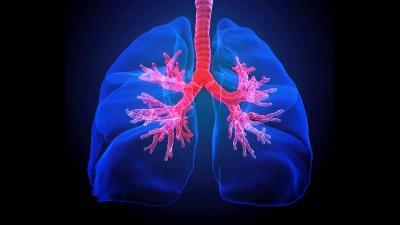Progress and Challenges for Nonanimal Research in 2024 Funding Legislation

In March 2024, the United States Congress enacted sweeping legislation providing funding to federal departments and agencies for the remainder of Fiscal Year 2024, which ends at the end of September. Each year, these federal funding bills present opportunities to enhance support for shifting away from using animals in federally funded research.
With the Physicians Committee’s advocacy, Congress implemented many provisions that will help prioritize nonanimal research and ensure effective progress in the development and use of nonanimal approaches to improve human health research and reduce animal use. Unfortunately, Congress also included some misguided provisions that provide support for animal experiments. Advocacy on the downfalls of animal experiments remains critical, and we look forward to continuing to push federal research and funding priorities toward modern human-specific science.
Highlighted below are summaries of provisions in FY 2024 appropriations legislation and accompanying reports related to animal experimentation at the Food and Drug Administration, the National Institutes of Health, and the Environmental Protection Agency.
Food and Drug Administration:
- Funding: A priority for the Physicians Committee, the bill allocates $1,500,000 for agency-wide initiatives to “reduce animal testing through alternative methods.” This funding will support the FDA’s New Alternative Methods Program, launched in 2023 to advance the development, qualification, and implementation of nonanimal approaches for regulatory use.
- Animal Testing for Cosmetics: A priority for the Physicians Committee, this language reiterates that animal testing should not be performed for safety testing of cosmetic products, and urges the FDA to continue supporting the development and testing of cosmetic products without animal testing.
- New Alternative Method: A priority of the Physicians Committee, this language directs the FDA to reduce animal testing and advance nonanimal methods in a measurable and impactful way. It also requests a report detailing program goals and priority areas, timelines, staffing, metrics for measuring impact, and plans for communicating acceptance of nonanimal methods to industry. In conjunction with funding provided to reduce animal testing through alternative methods, these directives will help support and provide transparency on FDA’s progress and plans as it works to reduce animal testing.
- Predictive Toxicology Roadmap Guideline Studies: A priority of the Physicians Committee, to prevent additional animal testing for validating nonanimal technologies, this language directs the FDA to prioritize the use of human data or existing data from already-conducted animal tests, rather than conducting new animal tests solely to compare them to nonanimal studies.
- Critical Path: This language recognizes the contributions of the Critical Path Public-Private Partnership Program in promoting the development of new tools, methods, and approaches to foster innovation and bring efficiency into FDA-regulated products development.
National Institutes of Health:
- Cephalopod Research: A priority for the Physicians Committee, this language recognizes the lack of federally required welfare standards for the use of cephalopods in research and encourages the NIH to consider developing guidance for the humane care and use of cephalopods, including possibly expanding research protections to include cephalopods.
- Artificial Intelligence/Machine Learning [AI/ML]: This language provides funding to support the NIH’s efforts to leverage AI, ML, and data science to accelerate the pace of biomedical innovations, in addition to other requests.
- Chimera Research: This language supports the NIH’s funding limitation on the creation of human-animal chimeras.
- Clinical and Translational Science Awards [CTSA] Program: Among other things, this language continues support for the CTSA program to modernize the nation’s approach to effective and efficient medical research, and encourages the program to catalyze emerging opportunities in AI, big data, and other areas.
- Hepatitis B: This language urges the NIH to take certain actions regarding updating the Strategic Plan for Trans-NIH Research to Cure Hepatitis B, but unfortunately, it states that continued use of animal experiments are research tools that need to be continued in this research to cure the disease.
- National Primate Research Centers: Unfortunately, this language provides $30 million to expand, remodel, renovate, or alter these non-human primate research facilities, or construct new facilities for non-human primate infrastructure. This funding supports ineffective, costly, and cruel research strategies using primates and diverts focus from nonanimal initiatives driving medical progress while reducing reliance on animals.
- Research with Non-Human Primates: Unfortunately, Congress erroneously and disappointingly claimed a “critical role of non-human primate [NHP] research in virtually all areas if biomedical research,” inaccurately stating that animal models make “irreplaceable contributions to understanding the biological processes that cause disease.” The language also expresses concern about the availability of primates for research. It directs the NIH to develop a strategic management plan for NHP research resources and urges the agency to fund research proposals using NHPs to study neurological diseases and preventing the next pandemic. While tremendously harmful, it includes a positive line at the end encouraging the continued development and validation of nonanimal methods that reduce the need for NHP models in the future.
Environmental Protection Agency:
- Testing Alternatives: A priority for the Physicians Committee, this language recognizes that nonanimal technologies represent key advances in science to support risk assessments of pesticides and chemicals, and encourages the EPA to continue supporting the development and evaluation of nonanimal methods.
- Chemical Reviews: Among other things, this language encourages the EPA to update its policies, procedures, and guidance related to new chemical reviews, ensuring communication with submitters on information requirements prior to and during submission of pre-manufacturing notices, which could help provide clarity on when animal tests are/are not required. It also encourages robust implementation of tiered testing strategies, which can help minimize animal testing, and requires an update to Congress on these efforts.
- Tiered Testing: This language encourages the EPA to conduct an objective analysis of all available information before requiring additional testing to fill information needs for chemical testing, and directs the EPA to employ a tiered testing strategy. These efforts can help reduce new animal testing.
Congress has already begun its work on forthcoming Fiscal Year 2025 appropriations bills. The Physicians Committee is working to build upon the progress made in 2024 to ensure that federal research funding provisions increasingly prioritize human-specific nonanimal research.







